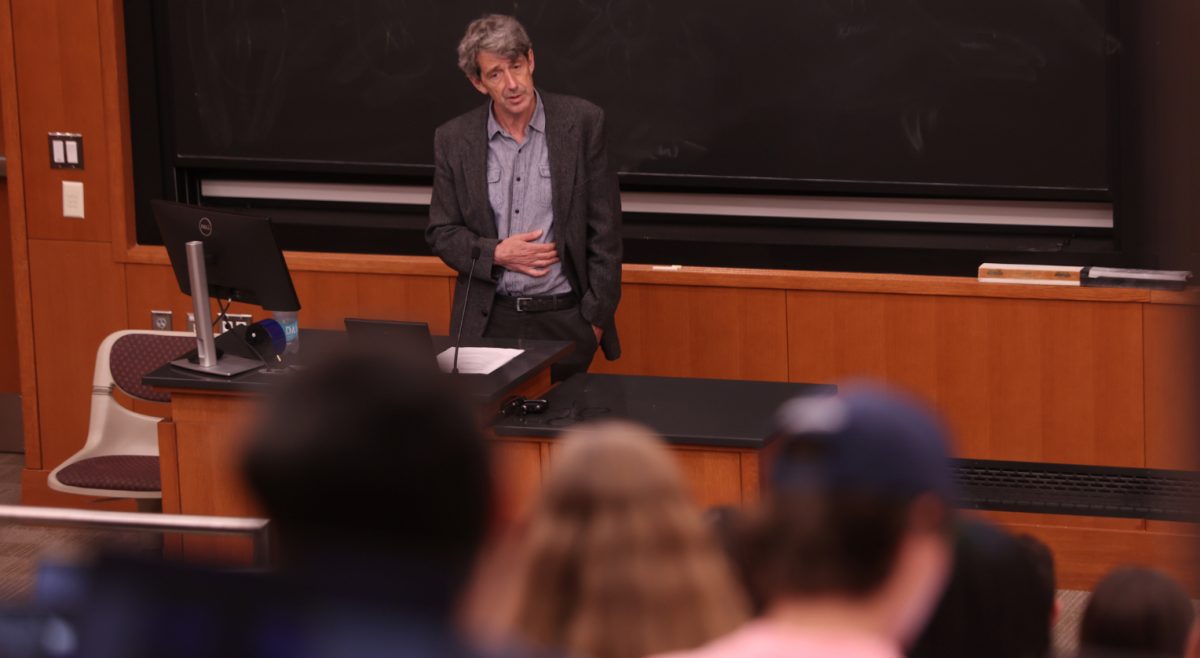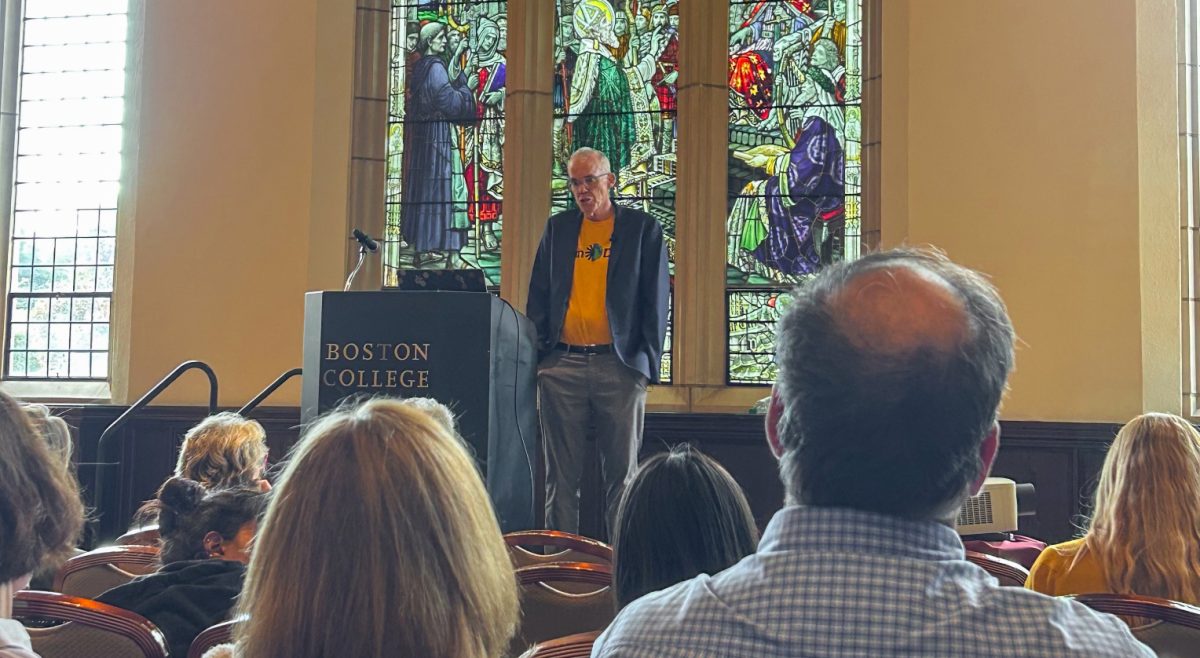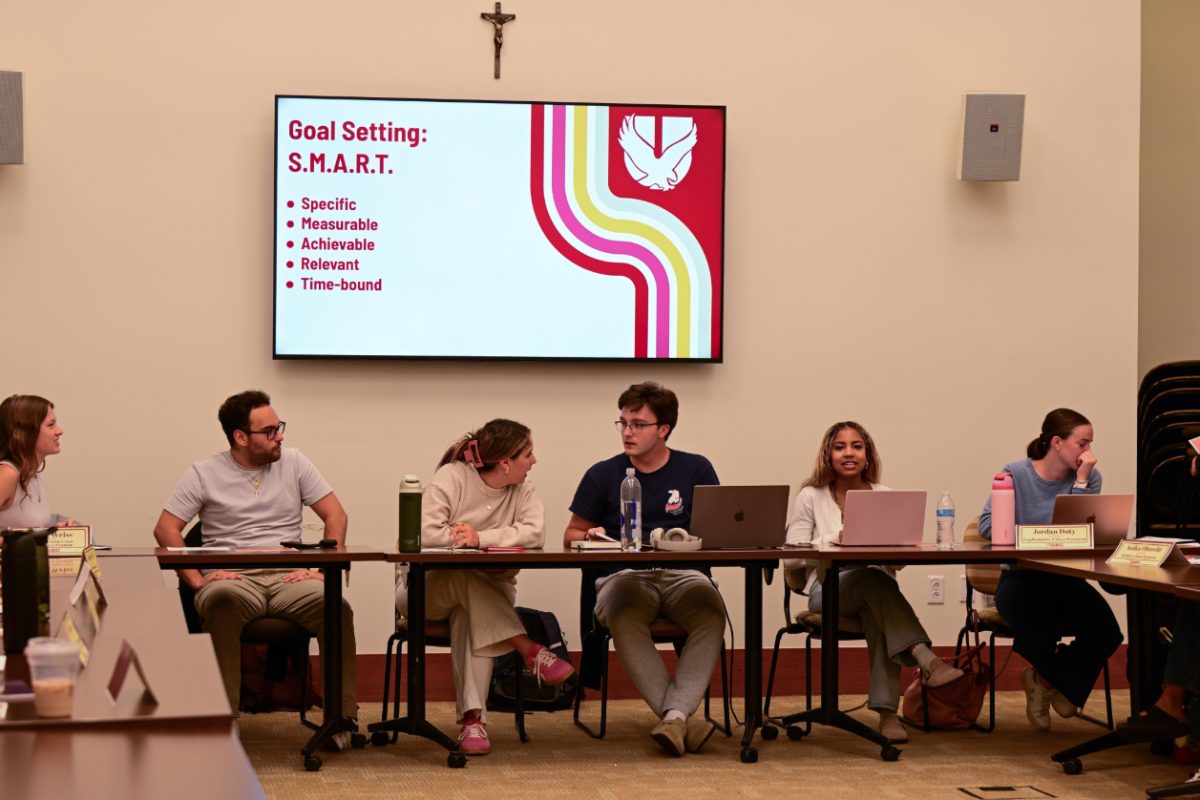The ongoing famine in Gaza is the consequence of Israel’s deliberate attempt to use starvation as a weapon of war, according to Alex de Waal, the executive director of the World Peace Foundation and research professor at Tufts University’s Fletcher School of Law and Diplomacy.
“Israel can turn this tap off and on in a way that is without parallels elsewhere,” de Waal said. “This could be ended by Prime Minister Benjamin Netanyahu tomorrow.”
De Waal discussed weaponized starvation in Gaza, Sudan, and Ethiopia on Thursday at a lecture co-sponsored by the international studies program, the Islamic civilizations and societies program, and the Irish studies program.
Famines caused by droughts, floods, poverty, isolation, and market failure have become increasingly rare, according to de Waal. By the 1990s, de Waal said policy experts’ focus shifted to addressing “atrocity famines,” or famines characterized by deliberate decisions to starve populations.
De Waal cited famines in Sudan, Somalia, and Syria, where rogue regimes or collapsed states used siege tactics and food deprivation as weapons in war. According to de Waal, these instances prompted an important question among humanitarians.
“How do we as humanitarians deal with human rights obligations to prevent the kinds of starvation crimes that are being perpetrated, as well as trying to relieve those who are actually suffering?” de Waal said.
According to de Waal, the famine in Gaza is an extreme example, unlike anything seen in recent years.
“It’s a middle-income population reduced to famine—not a poor population,” said de Waal. “The initial descent into mass starvation happened within weeks. The breadth of destruction of objects indispensable to survival has no parallel.”
De Waal cited two factors that separate the famine in Gaza from others—the extent of Israeli control and dehumanization.
He highlighted examples of dehumanization in past genocides, such as the Nazi’s use of the German word “fressen,” meaning “eating in an animal-like manner,” to refer to prisoners in concentration camps, reducing them to a standard of animals.
According to de Waal, this same effect of dehumanization is occurring in Gaza.
“We see it in the way the people of Gaza are portrayed in Israeli media,” he said. “The way in which Israel both denies what is happening and then justifies it. The way in which we have this phenomenon—I coined the phrase 10 years ago—counterhumanitarianism.”
De Waal explained how the Gaza Humanitarian Foundation has been in charge of food distribution in sites that are in the south of Gaza, far from many civilians, and are only open for a couple hours at a time—making it nearly impossible for people to get food.
“What is the rationale for this?” de Waal said. “I think partly it’s confusion on the Israeli side, but also it’s, ‘We don’t care.’” “Caring whether these people live or not, it’s the only conclusion one could come to.”
In 2018, the U.N. Security Council passed Resolution 2417, strictly defining the use of starvation through destruction or withholding of food and all other processes related to food such as water, food storage, production, and distribution, as a war crime.
Despite its implementation, de Waal pointed out situations when political obstacles prevented enforcement of Resolution 2417.
The first place this resolution failed to do its job was in Ethiopia, de Waal said, because the pushback from the United States.
“Basically, what it boiled down to is the Biden administration said, ‘African problems don’t bother us,’” de Waal said. “They did not want African issues to be raised to the level of the Secretary of State or the White House. They said, “we have enough on our plate.”’
De Waal identified three global problems that he said have always existed but recently resurfaced: the subordination of the humanitarian to the political, indifference to human suffering, and counterhumanism—something he said he has only seen to this extent in Gaza.
“There is a humanitarian obligation on the belligerent to feed people,” de Waal said.
De Waal concluded his talk by emphasizing that only the United States government can negotiate with Israel to end the famine.
“At the moment, there’s only one government Israel will listen to,” de Waal said. “It’s the United States.”













